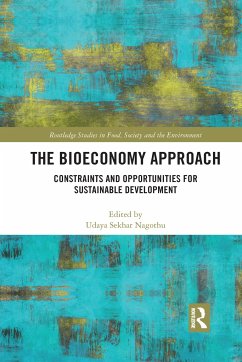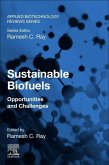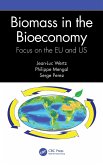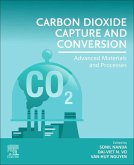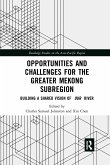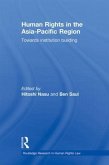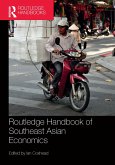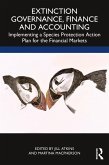This book examines the bioeconomy concept, analysing the opportunities it can generate, the constraints and the potential benefits for society.
The main objective of bioeconomy is to promote economic development, by creating jobs and enhancing the sustainable utilization of bio-resources. A primary driver of bioeconomy strategy, therefore, is the need to respond to the growing population's food and economic requirements. While today research and literature related to bioeconomy are limited, this book presents a unique collection of perspectives on the complex dimensions of the bioeconomy debate. Drawing on the experiences from Europe, Asia and Africa, it presents an international overview. The chapters address a wide range of issues, including coastal-land interactions, ecosystem services, food production, rural development, agriculture, forest management and bioenergy. As a whole, the volume outlines what role bioeconomy can play in contributing to the UnitedNations Sustainable Development Goals (SDGs) without compromising on the ecological sustainability and equitable distribution of benefits. The book concludes by providing recommendations for developing bioeconomy in respective sectors (agriculture, forestry, fisheries, renewable energy) and directions for planning future bioeconomy programmes and strategies.
The Bioeconomy Approach will be of great interest to students and scholars of ecological economics, development economics and environmental economics, as well as policy-makers and practitioners involved in sustainable development.
The main objective of bioeconomy is to promote economic development, by creating jobs and enhancing the sustainable utilization of bio-resources. A primary driver of bioeconomy strategy, therefore, is the need to respond to the growing population's food and economic requirements. While today research and literature related to bioeconomy are limited, this book presents a unique collection of perspectives on the complex dimensions of the bioeconomy debate. Drawing on the experiences from Europe, Asia and Africa, it presents an international overview. The chapters address a wide range of issues, including coastal-land interactions, ecosystem services, food production, rural development, agriculture, forest management and bioenergy. As a whole, the volume outlines what role bioeconomy can play in contributing to the UnitedNations Sustainable Development Goals (SDGs) without compromising on the ecological sustainability and equitable distribution of benefits. The book concludes by providing recommendations for developing bioeconomy in respective sectors (agriculture, forestry, fisheries, renewable energy) and directions for planning future bioeconomy programmes and strategies.
The Bioeconomy Approach will be of great interest to students and scholars of ecological economics, development economics and environmental economics, as well as policy-makers and practitioners involved in sustainable development.
"The focus of the book on bioeconomy is highly appropriate at a time when we are faced with the global grand challenges and an ambitious target to meet the sustainable development goals. The book provides an excellent review of the bioeconomy concept, its potentials and constraints, drawing experiences from several countries, covering various disciplines and sectors including agriculture, forestry and fisheries." Olaug V. Bollestad, Minister of Agriculture and Food, Norway
"This timely book provides potential pathways for successful implementation of sustainable bioeconomy, through comprehensive coverage of relevant sectors in various parts of the world. This is in line with United Nations University s expectations on bioeconomy to be a resort for environmental, social and economic sustainability." Taikan Oki, Senior Vice-Rector, United Nations University, Japan
This book makes a timely and innovative contribution towards understanding the relevance and practicality of bioeconomy, its concept, principles and best practices, towards achieving Sustainable Development Goals, including Zero Hunger. It deserves to be read and used widely! Hans Dreyer, Director, AGP, Food and Agriculture Organization of the United Nations
"This timely book provides potential pathways for successful implementation of sustainable bioeconomy, through comprehensive coverage of relevant sectors in various parts of the world. This is in line with United Nations University s expectations on bioeconomy to be a resort for environmental, social and economic sustainability." Taikan Oki, Senior Vice-Rector, United Nations University, Japan
This book makes a timely and innovative contribution towards understanding the relevance and practicality of bioeconomy, its concept, principles and best practices, towards achieving Sustainable Development Goals, including Zero Hunger. It deserves to be read and used widely! Hans Dreyer, Director, AGP, Food and Agriculture Organization of the United Nations
"The focus of the book on bioeconomy is highly appropriate at a time when we are faced with the global grand challenges and an ambitious target to meet the sustainable development goals. The book provides an excellent review of the bioeconomy concept, its potentials and constraints, drawing experiences from several countries, covering various disciplines and sectors including agriculture, forestry and fisheries." Olaug V. Bollestad, Minister of Agriculture and Food, Norway
"This timely book provides potential pathways for successful implementation of sustainable bioeconomy, through comprehensive coverage of relevant sectors in various parts of the world. This is in line with United Nations University s expectations on bioeconomy to be a resort for environmental, social and economic sustainability." Taikan Oki, Senior Vice-Rector, United Nations University, Japan
This book makes a timely and innovative contribution towards understanding the relevance and practicality of bioeconomy, its concept, principles and best practices, towards achieving Sustainable Development Goals, including Zero Hunger. It deserves to be read and used widely! Hans Dreyer, Director, AGP, Food and Agriculture Organization of the United Nations
"This timely book provides potential pathways for successful implementation of sustainable bioeconomy, through comprehensive coverage of relevant sectors in various parts of the world. This is in line with United Nations University s expectations on bioeconomy to be a resort for environmental, social and economic sustainability." Taikan Oki, Senior Vice-Rector, United Nations University, Japan
This book makes a timely and innovative contribution towards understanding the relevance and practicality of bioeconomy, its concept, principles and best practices, towards achieving Sustainable Development Goals, including Zero Hunger. It deserves to be read and used widely! Hans Dreyer, Director, AGP, Food and Agriculture Organization of the United Nations

